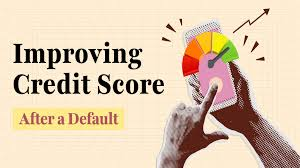
Buying your first home is an exciting life milestone. But it can also be overwhelming, especially if you don’t know where to start. From saving for a down payment to choosing the right mortgage, there are many steps involved in the homebuying process.
This guide will walk you through the essential things to know before buying your first home. Whether you’re dreaming of a downtown condo or a house in the suburbs, these tips will help you make a smart, stress-free decision.

Before browsing listings or attending open houses, it’s important to know your budget. A good rule of thumb is to spend no more than 28% of your monthly income on housing.
Here’s what to consider:
Pro tip: Use a mortgage calculator to estimate your monthly costs and stay within your budget.

Your credit score plays a big role in getting approved for a mortgage and getting a low interest rate. A higher score can save you thousands over the life of your loan.
Check your credit score early and take steps to improve it, such as:
Most lenders prefer a credit score of at least 620, but the higher, the better.

Many first-time buyers focus only on the down payment, but buying a home includes other upfront costs:
If possible, aim to save 15%–20% of the home’s price to cover all costs comfortably.
Getting pre-approved shows sellers you’re a serious buyer. It also gives you a clear picture of how much a lender is willing to loan you.
To get pre-approved, you’ll need:
Pre-approval is not the same as final approval, but it’s a strong first step in the buying process.
Make a list of your must-haves vs. nice-to-haves. This will help you narrow your search and avoid falling in love with homes outside your price range.
Think about:
Keep your goals realistic, especially in competitive markets.
A real estate agent is your guide through the home buying process. They know the market, can help negotiate the price, and make sure everything runs smoothly.
When choosing an agent:
Remember: the seller usually pays the agent’s commission, so there’s no cost to you as a buyer.
Even if the home looks perfect, there could be hidden problems. A professional inspection can reveal issues with:
If problems are found, you can negotiate repairs or even walk away before closing.
There are many types of mortgage loans available for first-time buyers:
Each has different requirements, down payments, and interest rates. Talk with your lender about the best option for your situation.
Once you’re under contract, it’s important to maintain your financial status. Lenders may check your credit and income again before final approval.
Avoid:
These changes can hurt your credit score or increase your debt-to-income ratio, which may jeopardize your loan approval.
Buying a home is not just a financial investment — it’s a lifestyle change. Make sure you’re ready for:
If you’re not sure you’ll stay put or handle extra costs, renting might be a better short-term option.
Buying your first home is a big step, but it doesn’t have to be scary. With the right preparation and a clear plan, you can avoid common pitfalls and feel confident in your purchase.
Start by understanding your budget, improving your credit, and working with a professional team. The more you know now, the fewer surprises you’ll face later.
And remember — your first home doesn’t have to be your forever home. It’s just the beginning of your journey.
Read More:- Shobha Realty Launches Its Most Luxurious Project Yet—Full Details Inside 2025
